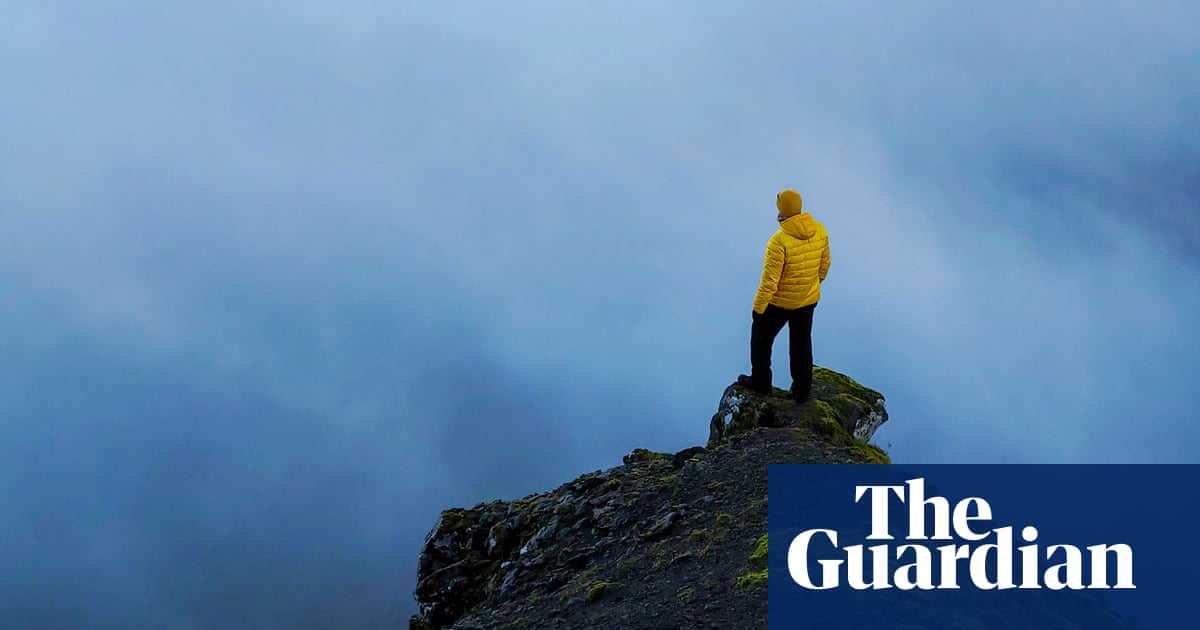
’ve just been out training for three and a half hours and it has rained for every single second,” says Alistair Brownlee, in a tone that almost veers into relish. “The weather is horrendous. Everywhere’s flooded. You can hardly run anywhere because it’s so muddy and wet.” And yet the double Olympic triathlon champion still splishes and splashes on towards further glories, even in this bleakest of midwinters, having set his sights on an extraordinary double crescendo to cap his career.
The first part? Winning a third triathlon gold medal in Tokyo this summer. But then, Brownlee says, he intends to follow it up with something even more audacious: becoming the first man to complete an ironman sequence in less than seven hours. “I am not getting any younger,” says Brownlee, who turns 33 in April. “So I’ve got to make the most of it while I can.”
The best time for a full ironman distance – a 2.4-mile swim, 112‑mile cycle and 26.2-mile run – is 7hr 35min, by the German Jan Frodeno. However, in echoes of Eliud Kipchoge’s sub two-hour marathon project, Brownlee’s idea is to use technology to create history.
“It would be impossible under normal conditions,” says Brownlee, who will make the attempt in the spring of 2022. “But like with the sub two-hour marathon, we are choosing the boundaries. We will have special HUUB wetsuits that will be thicker than permitted under ironman rules, and provide more buoyancy and make us faster. While on the bike, we will draft off pacers like in the Tour de France. As the bike is over 112 miles, that’s the obvious place to find the time.”
It will be an almighty challenge, with organisers claiming Brownlee will need to swim at the pace of an Olympic open-water medallist, cycle at an average speed of more than 30mph and run a sub 2hr 30min marathon.
“What makes it so hard is that there are so many moving parts to an ironman, even when compared to an Olympic distance triathlon [1500m swim, 40km bike and 10km run],” says Brownlee.
“You’ve got to fuel yourself correctly for seven hours, which is hard given we all get sick of gels. You have to get your fluids right. On the bike things like aerodynamics and helmet position are so important because if you save yourself five watts or 10 watts, that’s a significant difference. And there is also that fear – have I gone five minutes too hard, and is that going to cost me?”
Brownlee knows just how painful it can get when things go wrong. The first time he raced an ironman, at the world championships in Kona in 2019, he blew up in the heat on the run and dropped from third place to 21st. “At one point there was nothing on this planet that would have made me run at even a five-minutes-a-kilometre pace. There’s no way I wasn’t finishing but those final 10 miles were the worst of my life.”
Six weeks later, though, Brownlee competed in another ironman race in Australia and won by more than 10 minutes and smashed the course record, finishing in 7hr 45min.
While Brownlee will attempt to go under seven hours in a yet-to-be-decided venue, another Briton, Lucy Charles-Barclay, will aim to become the first woman to dip under eight hours. Their attempt will be backed by the Pho3nix Foundation, a Polish not-for-profit organisation that supports sporting participation among young people.
“They are all about inspiring activity and health and education in young people and I’m keen to use the vessel of triathlon to do that – as well as seeing how we can maximise human performance in terms of physiology,” says Brownlee.
What does his brother Jonny, who won Olympic bronze and silver in 2012 and 2016 respectively, make of it? “He thinks it’s mental,” replies Alistair. “He doesn’t know it yet but he’s going to be helping me out on the swim and the run.”
Isn’t Brownlee a bit of a sadist to keep torturing himself, given all the injuries he has endured? “Yeah, I definitely am to an extent,” he replies, laughing.
Before then, however, Brownlee is focusing on qualifying for the Tokyo Olympics. And, having finished second behind the Frenchman Vincent Luis in a World Cup sprint triathlon in Valencia in November, he is confident his best form is looming into view. “I came the closest that anyone’s come to beating him last year. If I can race like that obviously I’ll qualify easily and be in with a shot at Tokyo.”
That, of course, is assuming the Games take place. “As an athlete, I have to 100% believe it will go ahead. And I am sure the IOC will move heaven and earth to get it on. As we have seen, Covid is a movable beast. We’re on the curve of things going badly, but by the summer things could look much more hopeful.”
But should they go ahead if it means athletes flying in and out of Tokyo and competing in front of no crowds? “Any Olympics is better than no Olympics. And as long as the sport and the competition is on, stripping everything else out isn’t too much of a problem.”
As we finish I ask Brownlee his response to those who fear, as great as he has been, his most glorious days are behind him. “You might be right,” he says, as a flicker of defiance comes across his face. “But I’m doing everything I can to prove them wrong – and myself wrong.”












